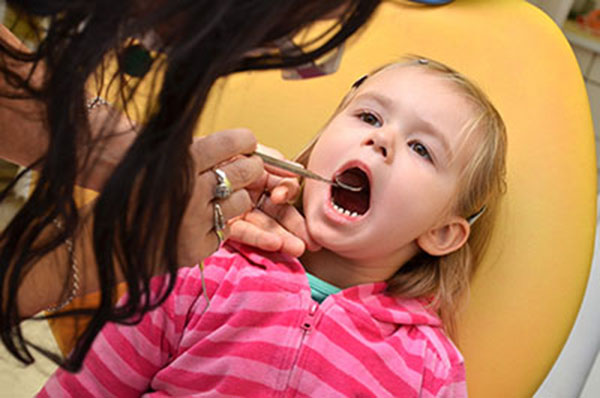Permanent Teeth Milestones: A Quick Guide From a Pediatric Dentist

As your child’s teeth come in, a pediatric dentist can help confirm that the teeth are coming in properly. There are several milestones your child should be meeting. This includes losing the first baby teeth around six or seven. Read on to learn more.
First molars
Between the ages of six and seven years, children will get the first molars. These teeth are known as “extra” permanent teeth. This simply means that the first molars do not replace any baby teeth. Sometimes, parents mistake these teeth for more primary teeth. However, it is vital to care for these permanent teeth. These teeth will also affect the shape of the child’s lower face.
Central incisors
When a child is between six and eight years, the central incisors will come in. These teeth are the two teeth in the front and center of the mouth. Both the upper and the lower jaws have these teeth. Individuals use these teeth for biting and tearing. The front teeth are some of the first ones that a child will lose.
Lateral incisors
A child’s lateral incisors will come in around seven and eight years of age. These are the teeth on either side of the central incisors. People will also use these teeth for tearing and biting. In the upper jaw, these teeth will usually come in about a month or two after the same one in the lower jaw.
Canine teeth
Children who are between nine and 13 years old will get the canine teeth. These are the slightly pointed teeth on either side of the lateral incisors. Individuals use these teeth for ripping slightly tough foods, such as meats. Each child will have four canine teeth.
Premolars
At around nine to 13 years old, the premolars will come in. These teeth will replace existing primary teeth. As the child grows, the jaw will grow longer to make way for the premolars. These teeth work to grind and chew food.
Second molars
When a child is about 11 to 13 years old, the second molars will come in. These are the last teeth to come in for several years. These teeth are at the very back of the mouth. Because these teeth are wide and flat, they are good for grinding foods.
Third molars, or wisdom teeth
If children get the wisdom teeth, they will usually come in between the ages of 17 and 21 years. Many times, the teeth are not aligned properly. If this is the case, then the child may need to have the wisdom teeth removed. Wisdom teeth removal can prevent decay from poorly cleaned teeth later. Wisdom teeth are usually not needed for chewing.
Visit a pediatric dentist today
As your child’s teeth come in, it is good to visit a pediatric dentist regularly. Visiting every six months is a good starting point. This dentist can confirm that the child is on track. Sometimes, early orthodontic treatments will be necessary.
Request an appointment here: https://nettsmiles.com or call Nett Pediatric Dentistry & Orthodontics at (623) 759-7658 for an appointment in our Phoenix office.
Check out what others are saying about our services on Yelp: Read our Yelp reviews.
Recent Posts
A kid-friendly dentist is a dental professional that offers services for children. They typically have welcoming environments with colorful office areas and implement methods to make children feel comfortable and confident during each visit. This review highlights who needs a pediatric dentist and how often parents should take their children to see one.All children should…
A kid-friendly dentist can help improve a child’s smile in various ways. While their primary focus is on oral health, kid-friendly dentists offer services that have cosmetic benefits, as well. The following review highlights the types of dental services that kid-friendly dentists offer that can improve your child’s smile.Every dentist has their own unique set…
A kid-friendly dentist can help your child by diagnosing, treating, and preventing oral health concerns. They also ensure children feel comfortable in the office by designing it to be more welcoming and vibrant. In addition, the friendly dental staff will have a warm and friendly demeanor to help the child from each check-in to checkout.The…
Children’s braces can correct misalignment problems at a young age. Wearing these corrective devices can also help teach kids the importance of dental care. Asking the right questions during consultation can help you understand the process. Here are three FAQs that you can ask your dentist about children’s braces.The dentist will conduct a physical dental…


